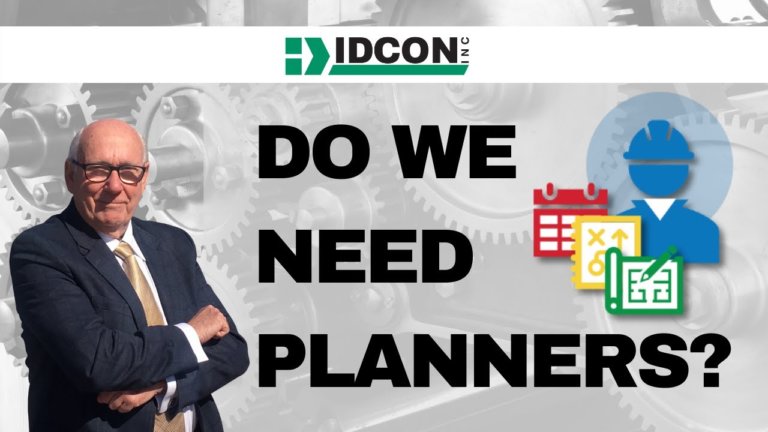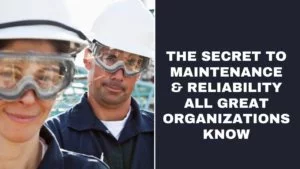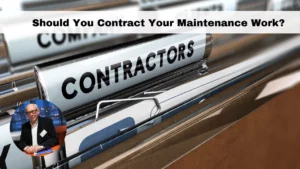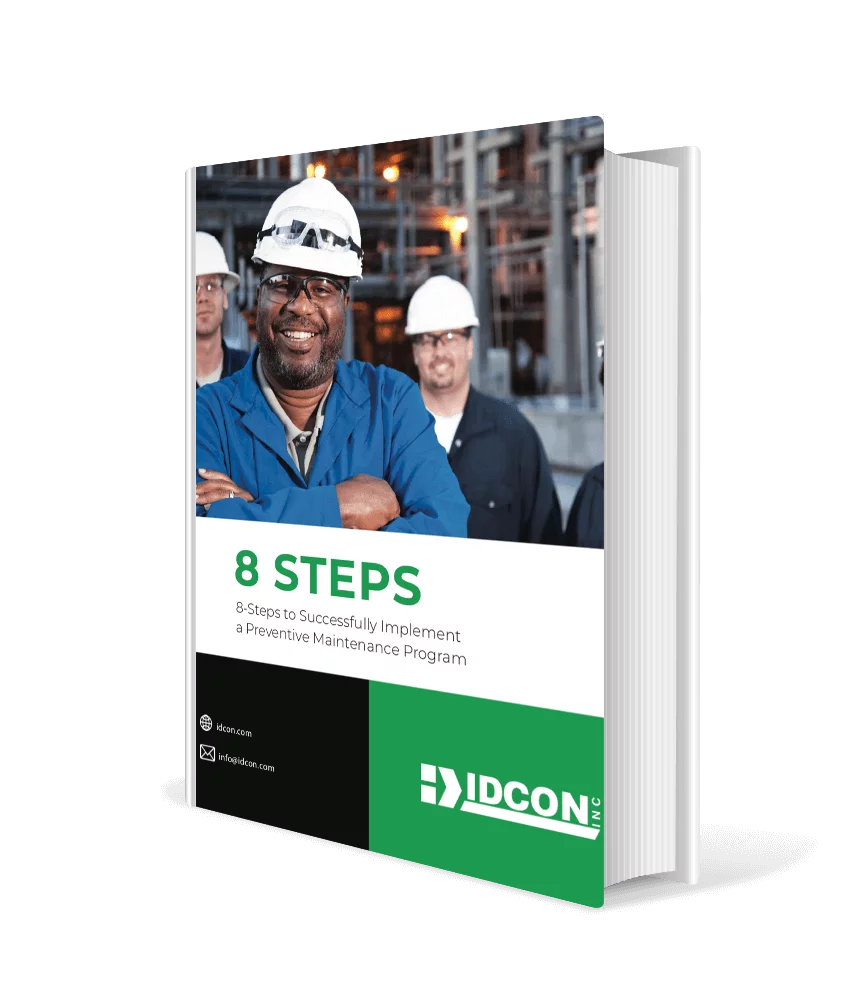Organizing a Maintenance Department
Are you trying to figure your role in your company or attempting to improve the effectiveness of your organization? Or maybe you need to improve the job descriptions (or maybe you want to prove to your boss you’re working on the wrong tasks.)
Key Roles and Responsibilities
Let’s look at the typical roles for an organization to achieve improved reliability. Of course, are the same, we all have different needs, size and manufacturing process, this article will detail the roles within an organization that often works.
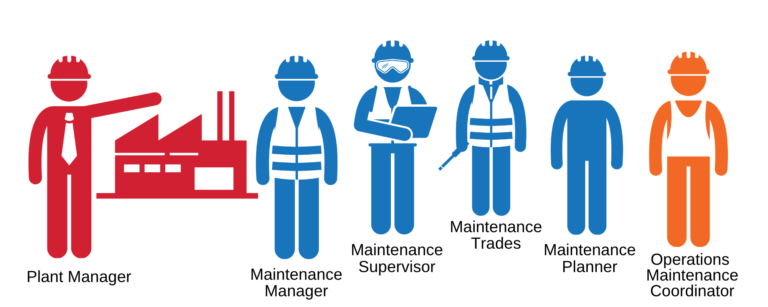
If you’d rather watch videos about the skills and responsibilities of the 5 roles in this post, you should check out our “What’s My Job” series of videos.
Let’s start from scratch with the purpose of the maintenance department
Many feel that servicing operations should be the goal for a maintenance department. However, having service by itself as a goal can take us down a path that most likely will lead to poor reliability and a reactive work environment.
If operations call all the shots, it is common that core maintenance activities such as precision lubrication, condition monitoring, quality planning, and precision scheduling are not done well.
The product of a maintenance department should be equipment reliability, and the organization should be striving for a partnership between operations, maintenance and engineering. It should not accept or promote a service-client relationship.
For reliable production a joint commitment between operations, maintenance, and engineering is crucial. The Venn diagram illustrates the interaction between departments. Each department has a responsibility, but there is overlap between the departments where the partnership is crucial.
The plant manager is typically the only role that can referee the partnership since all departments report to the plant manager.
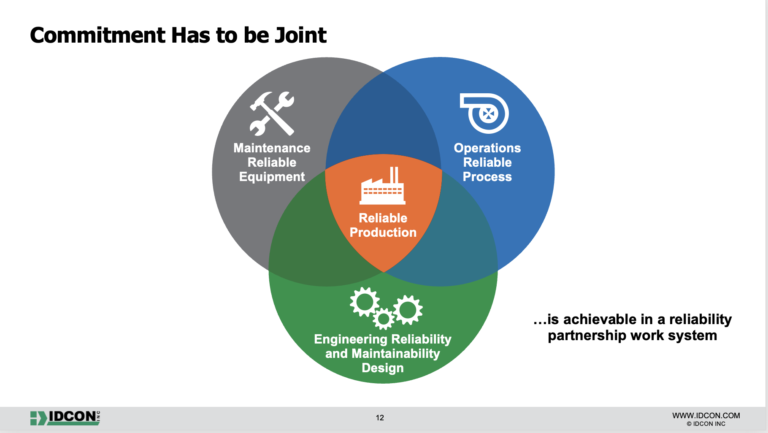
The Plant Manager - Overall Accountable.
Ultimately, the person accountable for reliable production is the Plant Manager.
It’s their responsibility is to develop a process that the organization can follow in their daily job to execute or perform their work. They should foster the partnership system, if not, it’s doomed to fail along with any maintenance improvement initiatives.
The plant manager is typically the only role that can referee the partnership since all departments report to the them.
Key Skills of a Successful Maintenance Manager
The Maintenance Manager is responsible for the day-to-day operation of the maintenance department ensuring that equipment is reliable.
The maintenance manager walks the tightrope between the Plant Manager, Operations department, and the maintenance team. They wear many “hats” – from educator to budgeter. If the Maintenance Manager doesn’t possess the rights skills their poor leadership can cause chaos in a maintenance department.
- Work initiation
- Prioritization of work orders
- Maintenance Planning
- Maintenance Scheduling
- Maintenance skills and execution
- Contract Management
- Preventive Maintenance
- Shutdown Management
- Maintenance technical database
- Interface with Engineering
- Materials management
- Root Cause Failure Analysis
The maintenance manager should balance maintenance resources between plant areas and crafts, especially for shutdown needs between departments and the need for contract maintenance and overtime.
If the Maintenance Manager doesn’t possess the right skills their poor leadership can cause chaos in a maintenance department.
Did you know that IDCON coaches Maintenance Managers to improve leadership?
Maintenance Manager Skills
- Educator
Educating operations and plant management about reliability and maintenance is one of our most important roles. We need to know the vision and mission of the maintenance department and be able to explain it clearly. We also need to know where our department is right now and what it should be in the future…and what it will take to get there.
- Creator of maintenance goals and KPIS
The goals created need to match and be tied to the reliability, maintenance, and overall business’ goals. The goals then need to filter down to the individual members of the department. For example, “Lowering the overall cost” doesn’t really mean much to an electrician but if you tie a KPI of looking at motor life to them, that is actionable goal that ties to the goal of lowering the overall cost.
- Developer of clear roles and responsibilities
We should be reviewing the job descriptions of each of maintenance team versus the tasks they are assigned. You can learn more about the maintenance manager’s role and responsibilities by watching our 3-part series.
Maintenance Supervisor
In today’s maintenance organization the supervisor is one of the most important positions. The skill of “balancer” is essential to the success of this role. The need to meet goals and initiatives set out by upper- and mid-management must be balanced with supporting the crafts team. The daily business needs to be managed by having motivated and trained people complete their job.
The main responsibility of a Maintenance Supervisor is ensuring that the work is executed efficiently, safely, and with high quality.
A good Maintenance Supervisor should have the technical skills to understand the work their crew is doing. Often, former Craftspeople and Reliability Engineers turn out to be great Maintenance Supervisors because of their hands-on experience.
Should the Maintenance Supervisor be the Scheduler?
In our opinion, the maintenance supervisor should do the weekly and daily schedules. Why? No one knows their crew’s skills and availability better than they do. If you have dedicated schedulers, they should work closely with the maintenance supervisors to ensure the right people are on the right jobs.
How Many Maintenance Supervisors are Needed?
The number of maintenance supervisors that you need is based on several factors. This article gives you guidance on what you should consider.
Maintenance Trades - The Execution Team
Your trades and technicians are the backbone of the reliability and maintenance system. We can design the best planning, scheduling and Preventive Maintenance program in the world, but without the maintenance trades and technicians nothing will get completed. Whether we contract out or have in-house maintenance team, or a combination of both, it’s important they have received the training and possess the skills, and tools to maintain the equipment.
It works best when the maintenance trades are involved in developing Condition Monitoring routes and Standard Job Plans. Their expertise is invaluable and by engaging them early in the process we are assured they will be “on-board” with any improvements we make to the program.
The tradespeople are also responsible for administrative tasks such as entering the work requests/ notifications into the CMMS, add history into the CMMS and provide feedback to the planners in order to improve job packages.
Trades should also be involved in improvement efforts such as Preventive Maintenance documentation improvements, root cause failure analysis (RCFA), and much more.
Maintenance Planners
Every job must have a safety check, parts, drawings, tools, and technical information to do the job. All jobs are planned, with or without maintenance planners, one way or another. Maintenance planners ensure that work is planned more efficiently and with higher quality before it is scheduled. If your plant manager or corporate team are resistant to adding planners, here’s a great video justifying the need for the position.
Planners - Looking to the Future
3 Top Reasons Planners Don't Plan - Survey Results
In our survey “Why planners don’t plan” we’ve learned that the top three reasons that planners aren’t planning are:
Too many emergencies
Of course a true emergency cannot be avoided, but in many cases the emergency isn't really an emergency.
Emotional Priorities
Break-in work is created due to people wanting thier requests done now, even if should be done later.
Lack of Training
To be effective, a planner must be trained how to do their job. Get Training for your planner
How do you make sure that your planners can plan the work? First, we suggest making sure you have the right people with the right skills in the planning function. Learn about the 7 essential skills that planners need.
Second, know how many planners your organization needs. This article will help you, hint…there is no magic number, there are many factors to consider.
Next, the planners need to be in an environment conducive to planning. They should be close enough to the floor to scope out jobs but insulated enough that operations or other maintenance team members aren’t dropping by with work requests. The planner should never work on something that happens today, only tomorrow and forward.
And most importantly, everyone in the organization needs to understand the role of the planner and the purpose and benefits of planning and scheduling. We have an online introduction to work management training to help. This training is great for building cohesion across all plant functions.
To address the issue (number 3) of planners not being trained to plan work, we offer several training options for our clients – from online training with a Subject Matter Expert to on-the-job coaching.
Operations Maintenance Coordinator
This role is a partnership builder between the operations and maintenance functions. This is a role we advocate for. It’s important for coordinating production and maintenance schedules. Instead of maintenance going to multiple people in operations they have a single contact (or if a large plant with many areas – 1 OMC per area). And conversely, the OMC is a point of contact for operations to contact maintenance. Instead of operations contacting maintenance directly with work requests, which will cause reactive maintenance. Without this gatekeeper, you run the risk of all work requests being high priority (1).
To learn about the main responsibilities of the OMC, watch our “What’s my job” series of videos.
The main responsibilities of an OMC are:
- Receive all incoming work requests
- Screen work requests for duplicates & validity
- Approve valid work requests in collaboration with maintenance
- Prioritize WOs with maintenance
- Set next week's schedule with maintenance
- Follow up on status of this week’s schedule
- Track how well last week's schedule was followed
- Coordinate production schedule with maintenance
- Make sure Lock-Out & Tag-Out (LoTo) is done
- Meet with maintenance planners and assign work to plan
Reliability Engineer
The role of reliability engineer includes evaluating equipment failure modes and utilizing engineering experience and training to develop solutions for eliminating, preventing, and detecting potential failures. There seems to be confusion about what their focus should be at many of the sites we visit.
Because of a lack of clarity surrounding their role, reliability engineers often complete work that is not strategic. They should be focused on three main tasks:
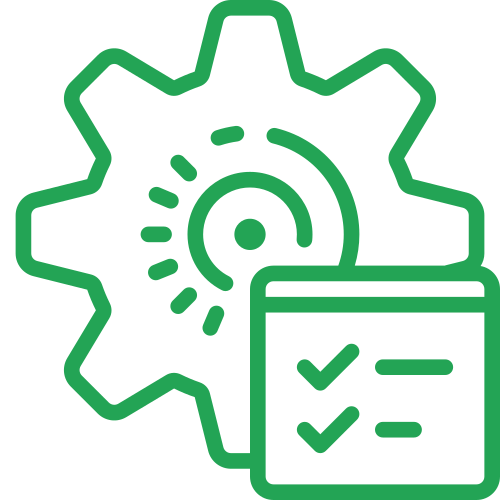
Prevention
Including design for reliability and maintainability, design for LCC, installation quality.
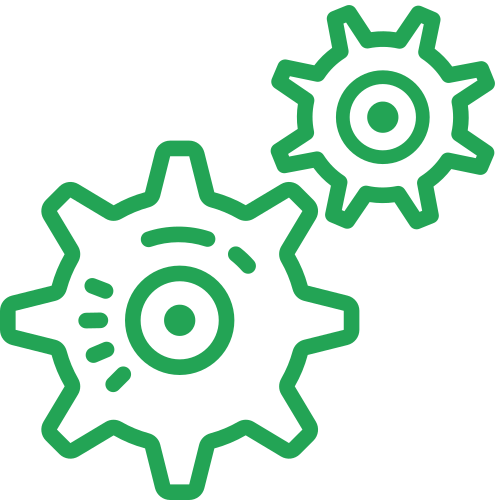
Finding Failures
Using the right methods CM, PdM, Continuous monitoring (AI, IIoT)

Analyze equipment & process data
This includes selecting problems that should have a formal RCFA
Survey results "How do you spend your time?
In our online survey, we asked how reliability engineers spend their time. The results indicate that they are not fulfilling their strategic role.
- 55% said they spend less than 30% of their time on prevention
- 81% said they spend less than 30% of their time on finding failures
- 75% said they spend less than 30% of their time on Root Cause investigations
Take the survey to give your feedback
Want more details about Reliability Engineers should be doing? Watch our series “What’s my Job?” on YouTube.
These are just a few of the major roles in a plant organization that have an impact on reliability and maintenance performance. It’s worth noting that not every position has to be full time.
What’s really important is that all these roles need to have a good understanding of what reliability and maintenance best practices are to drive reliable production.


